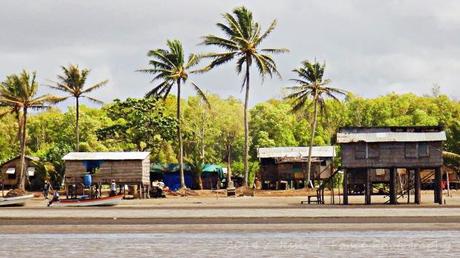
The village of Tureture as seen from its coast
This photo essay was scheduled to be posted for later date but, realizing that the World Environment Day is being observed today, June 05; I decided to publish it now. While in the US, Obama has made a major policy decision to force power plants to cut carbon emissions by 30% (from 2005 levels) over 15 years which, accordingly, “represents one of the biggest actions taken by the U.S. government — and the biggest taken by any U.S. president — to slow climate change” (and the American people are once again divided regarding the popularity of this decision); the Kiwai people in this small seaside village across the Pacific struggle to survive between an advancing sea and a hostile neighbor and may never understand what (and WHO) are causing it.
Gulf of Papua, May 06, 2014: I was on a motorized dinghy with a team to visit Tureture (pronounced too-re’-too-re’) a Kiwai village at the mainland less than an hour by dinghy across the channel from Daru Island. The Kiwai people compose one of the more than eight hundred tribes of Papua New Guinea. They also represent the Kiwai Local Level Government (LLG) or municipality in the South Fly District of the Western Province of Papua New Guinea. Because the Kiwai people are seafarers and must live near the water, the villages of Kiwai LLG are scattered along the shores of Daru and along the coastline of the PNG mainland just facing Daru Island . Tureture is, of course, also along the coast and I was excited to see another fishing village. What I discovered about it, however, was totally unexpected.
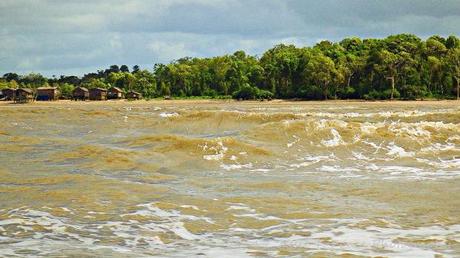
A rough sea was hammering the shore of Tureture as we approached it through a bumpy dinghy ride from Daru Island.
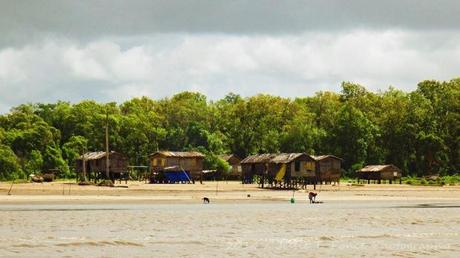
A cluster of flimsy-looking thatch houses can be seen from where our dinghy landed.
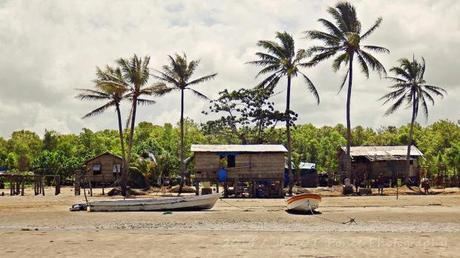
And then the details of the village gradually got clearer as we approached it.
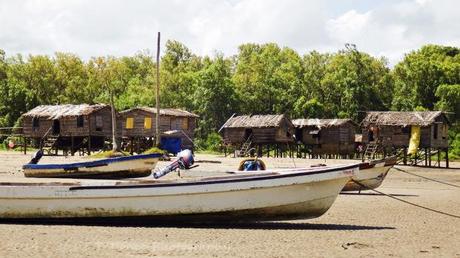
It became apparent that the village makes a living mainly from the sea
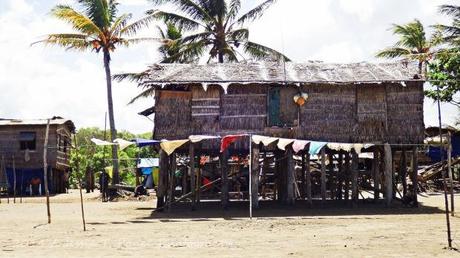
But I slowly sensed that something was not right as we entered the cluster of a few dozen houses.
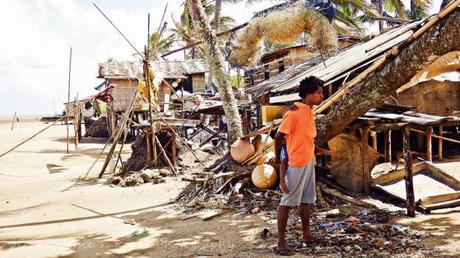
The sea has taken over the village and is pushing the villagers farther inland. This mother sadly explained that there is nowhere else to go. Higher ground farther inland is owned by another tribe, the Oriomo-Bituri people. The Kiwai’s attempts to move their homes to that site has triggered a land conflict with the Oriomo-Bituris.
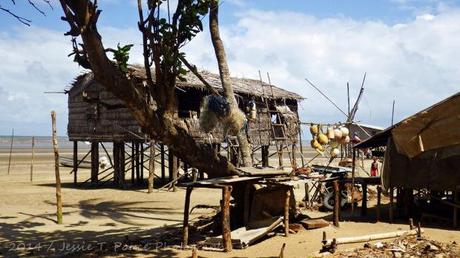
And now they are caught between an advancing sea and a hostile, unsympathetic neighbor.
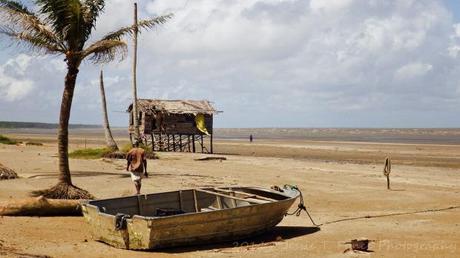
The villagers recall that, less than 3 decades ago, the coastal edge of their village was on dry land more than 200 meters out towards the sea.
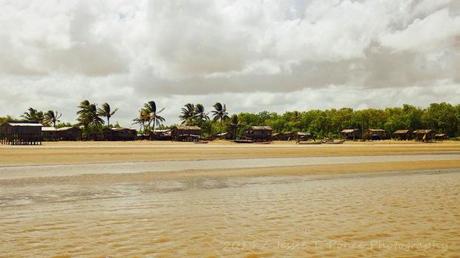
This unusually wide beachfront was once dry land. Tureture stood on it, stretching out to sea some hundred meters more from where I stood.
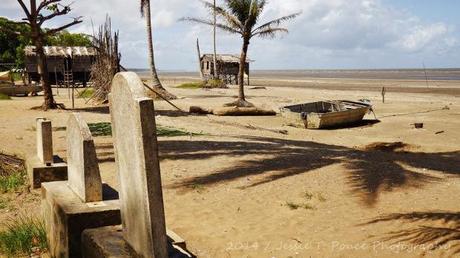
But now even their dead are being threatened by the advancing tide.
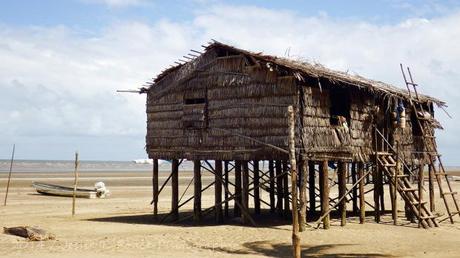
Some villagers have already relocated to other Kiwai villages. The rest have decided to stand their ground against the sea although their flimsy thatch houses do not seem to have a chance.
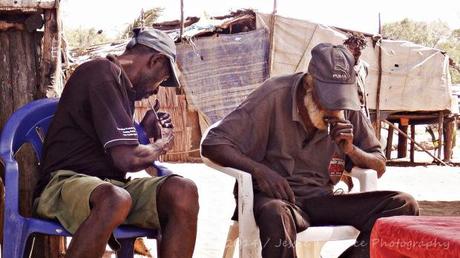
The village leaders have been thinking of solutions but were unsuccessful. The elder, apparently educated, said he heard of climate change but does not understand why they appear to be helpless against it.
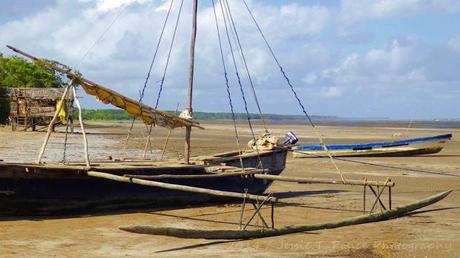
And they all hope that someday the sea will give back what it took from them. Just as it has given and continues to give. Someday.
